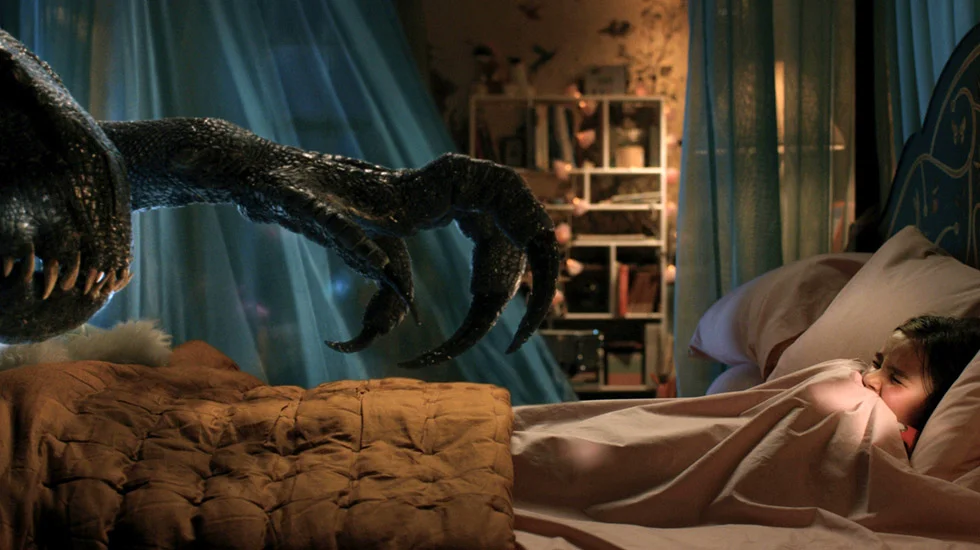Pascal Plante’s psychological thriller is one of the most disturbing movies of recent years.
Read MoreIn Dune: Part Two, Denis Villeneuve mirrors narrative and relationship patterns from Dune: Part One in order to amplify the film’s dramatic impact.
Read MoreAlex Garland’s Civil War is more provocative exploitation film than political treatise.
Read MoreJonathan Glazer’s The Zone of Interest is like an art installation about what exists just outside the frame.
Read MoreWith restraint, focus, and power, Sound of Freedom exposes the demand and supply sides of child trafficking.
Read More1917 can only seem incredibly real and immersive for generations far removed from the actual horrors of 1914–1918.
Read MoreMusings on consciousness, cryptomnesia, strange loops, artistic inspiration, and Christopher Nolan’s Tenet as inspired by Charlie Kaufman’s I’m Thinking of Ending Things.
Read MoreAnton explores the dinosaur franchise, its science fiction themes, and the nature of the reboot.
Read MoreAnders revisits the fandom-splitting film and considers its treatment of the Star Wars myth. Is it actually Rian Johnson's reverent tribute to Lucas's series?
Read MoreFeaturing various techniques of defamiliarization, Hacksaw Ridge is war film that is both conventional and original, and, ultimately, deeply affecting.
Read MoreThe film employs the Christ figure to explore notions of salvation and personhood.
Read MoreHyperNormalisation, O.J.: Made in America, Hell or High Water, Moonlight, and Arrival capture the tumultuous sociopolitical times of 2016.
Read MoreA blinkered vision of human nature and achievement.
Read MoreIs this just another "faith-based" film?
Read MoreHow do we determine if an artificial intelligence is conscious?
Read MoreAren explores how JOHN WICK contains the best action scenes in recent American cinema.
Read MoreAren explores how the modern American action scene lacks imagination.
Read MoreAnders explores James Gray's contribution to the long tradition of the melodrama in American film.
Read MoreThese movies are a reflection of American Christianity's preoccupations.
Read MoreAnton explores the tensions in Anderson's aesthetic.
Read More


















